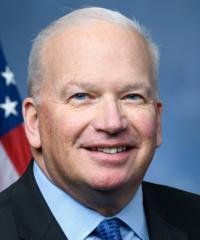
Elected in 2020, Congressman Scott Fitzgerald represents Wisconsin’s Fifth Congressional District in the U.S. House of Representatives.
Prior to his election to Congress, Fitzgerald served in the Wisconsin State Senate representing the 13th District from 1995 to 2021. During his tenure in the Wisconsin Senate, Scott served as Majority Leader, Minority Leader, Co-Chairman of the Joint Committee on Finance, and Chairman of the Senate Corrections Committee.
Fitzgerald joined the US Army Reserve in 1981 and was commissioned as a lieutenant in the Armor Branch in 1985. He completed the Army Command and General Staff College and served in a number of assignments during his 27 years of service, including Battalion Commander. In 2009, he retired from service at the rank of Lieutenant Colonel.
1) Instead of pressuring the oil and gas industry to cap prices, the President should streamline the permitting process for federal land and allow projects like the Keystone XL pipeline to continue. This will not only create thousands of high-paying jobs at a time when Americans need them most but decrease our reliance on oil from our adversaries.
2) According to the U.S. Bureau of Labor Statistics, the manufacturing industry lost 7.5 million jobs since its peak in 1969, with the most significant drop between 2000 and 2017. Ensuring our tax system is favorable to manufacturers is one way to reverse that trend. Congress and the Administration could work together to make permanent the 100 percent bonus depreciation credit passed as part of the Tax Cuts and Jobs Act (TCJA), which is set to begin phasing out at the end of 2022. According to Tax Foundation estimates, making the TCJA bonus depreciation provision permanent would result in higher wages, a larger economy, and 172,300 new full-time jobs.
3) Since taking office less than two years ago, President Biden’s added $1.9 trillion in debt through the passage of ARPA, lobbied Congress to pass the $2.15 trillion Build Back Better agenda, raised the federal debt limit, and recently endorsed nearly $1 trillion in new spending with more than a third for Green New Deal initiatives. Inflationary pressures will only worsen if we do not work to cut reckless spending.